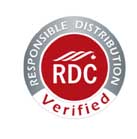Best Practices, Chemical Transportation, Hazmat Transportation
5 Scary But True Things About Heat Season
November 1st is generally the time of year that most chemical transportation shippers start to require heat on liquid chemical shipments. In light of it coinciding with Halloween, I thought I’d share “5 Scary but true” things about Heat Season.
1. Not all heated chemical shipments are shipped with heat!
Many large LTL carriers do not actually heat the liquid chemical shipment. Because some of the larger LTL carriers move freight between their heated cross dock facilities, they take the gamble that the liquid chemical product won’t freeze in the short trips between heated warehouses. They still charge for “protect from freeze” service and hopefully their gamble pays off and they have less claims than the amount collected in “protect from freeze” revenue.
2. Liquid in motion, generally doesn’t freeze!
Did you ever notice that rivers rarely freeze in the winter time? This is because the motion of the water interrupts the formation of ice crystals and it stays liquid when the air temperature is way below the freezing point. Truckers have relied on this principal as well. Sometimes a “protect from freeze” shipment of liquid chemicals can be shipped on a non-heated truck in the winter time as long as, it keeps moving. The motion of the truck keeps the liquid from freezing.
3. Protect from freeze and temperature control are two different things!
A shipment that says “Protect from Freeze” on the BOL doesn’t necessarily imply heated service (see 1 &2 above!) If you have a very sensitive liquid chemical product that has a real threat of freezing, you should specify “maintain between 5-10 degrees Celsius,” for example.
4. Insulating Blankets can be used instead of a reefer
Sometimes, if your liquid chemical product is warm and coming from a heated warehouse and going to a heated warehouse, you can use insulating blankets. The concept is to wrap the skids in the insulation blankets and the product will hold its temperature longer. The product will gradually cool naturally from pick up to delivery. As long as, the delivery temperature remains above freezing you don’t need to heat the shipment in transit.
5. Product can freeze in a heated warehouse!
So, you’ve paid extra for your chemical transportation provider to protect a product from freeze and you move it into your heated warehouse and then, surprise! Somehow your drum is frozen. A good tip is you should always make sure your sensitive to freeze liquids are stored on a pallet. The concrete floor of even a heated warehouse can be quite cold. Especially, near a door or outside wall. If you are storing your drums directly on the floor, your product can be in danger of freezing.
HAPPY HEAT SEASON….Keep your liquid chemicals in a liquid state!
For heat and hazardous chemical transportation experts visit our website:
Chemical and HAZMAT Trucks
About Author
Comments are closed











